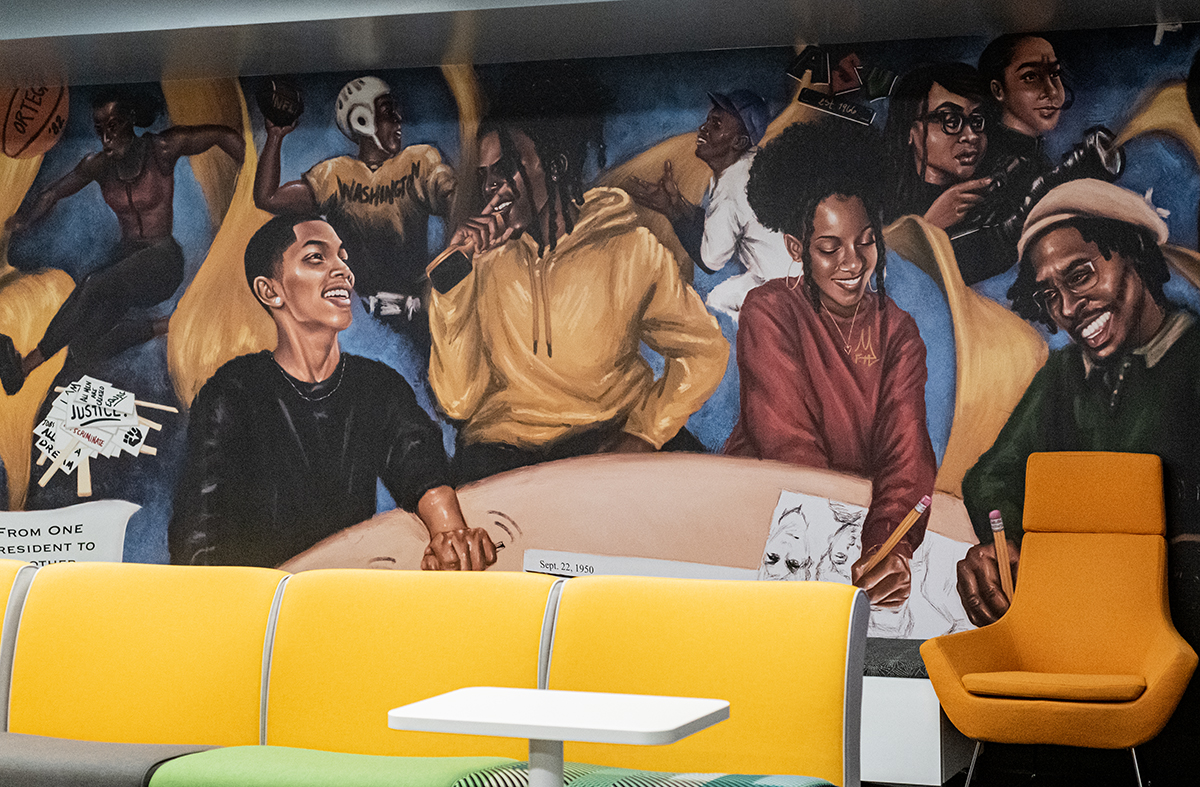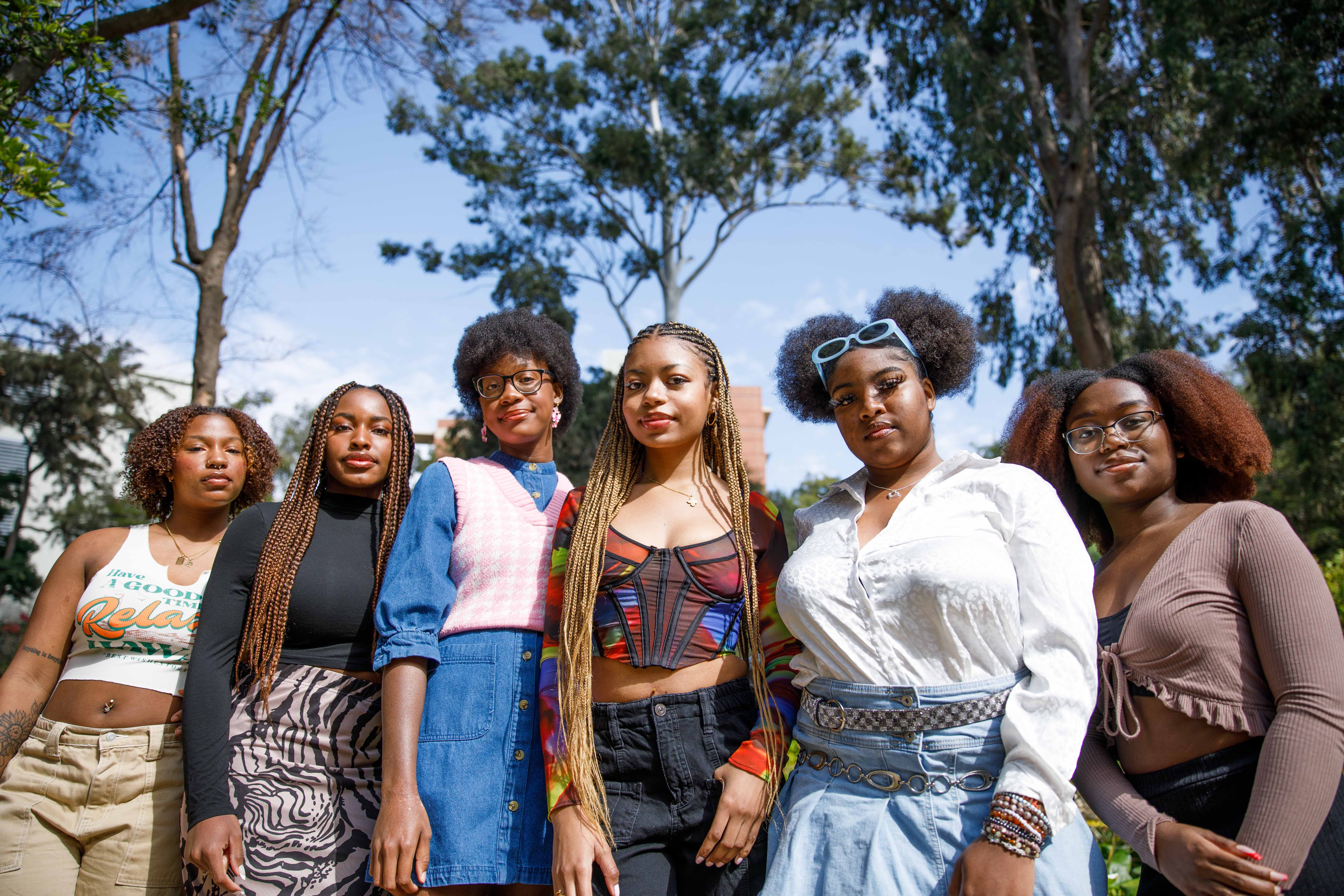All-Black play ‘SuperAmerica’ spotlights effects of capitalism on Black experience
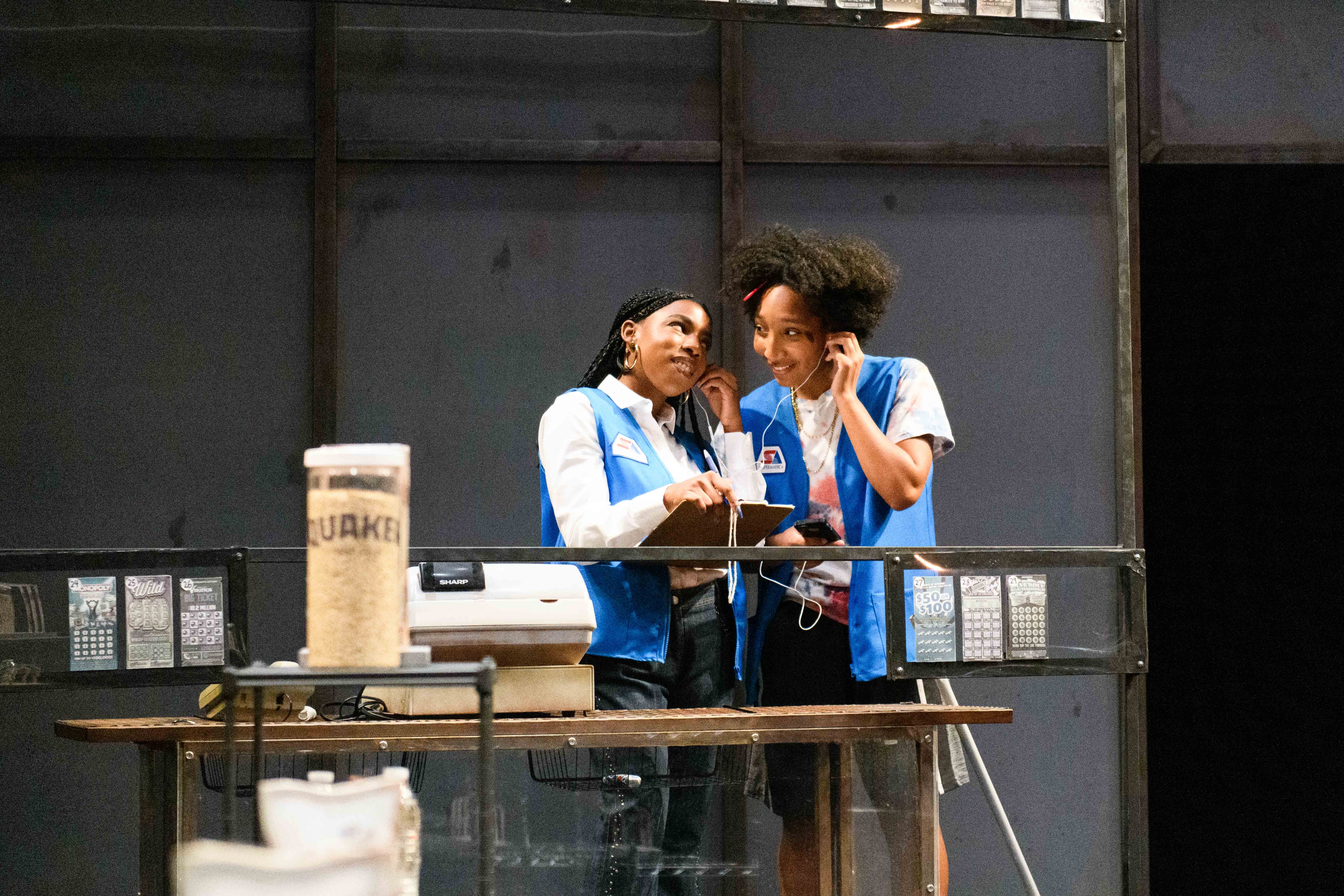
Fourth year theater students Gia Blakey and Elliyah Banks perform on stage in “SuperAmerica.” The play is written by graduate student in playwriting Malick Ceesay. (Myka Fromm/Daily Bruin)
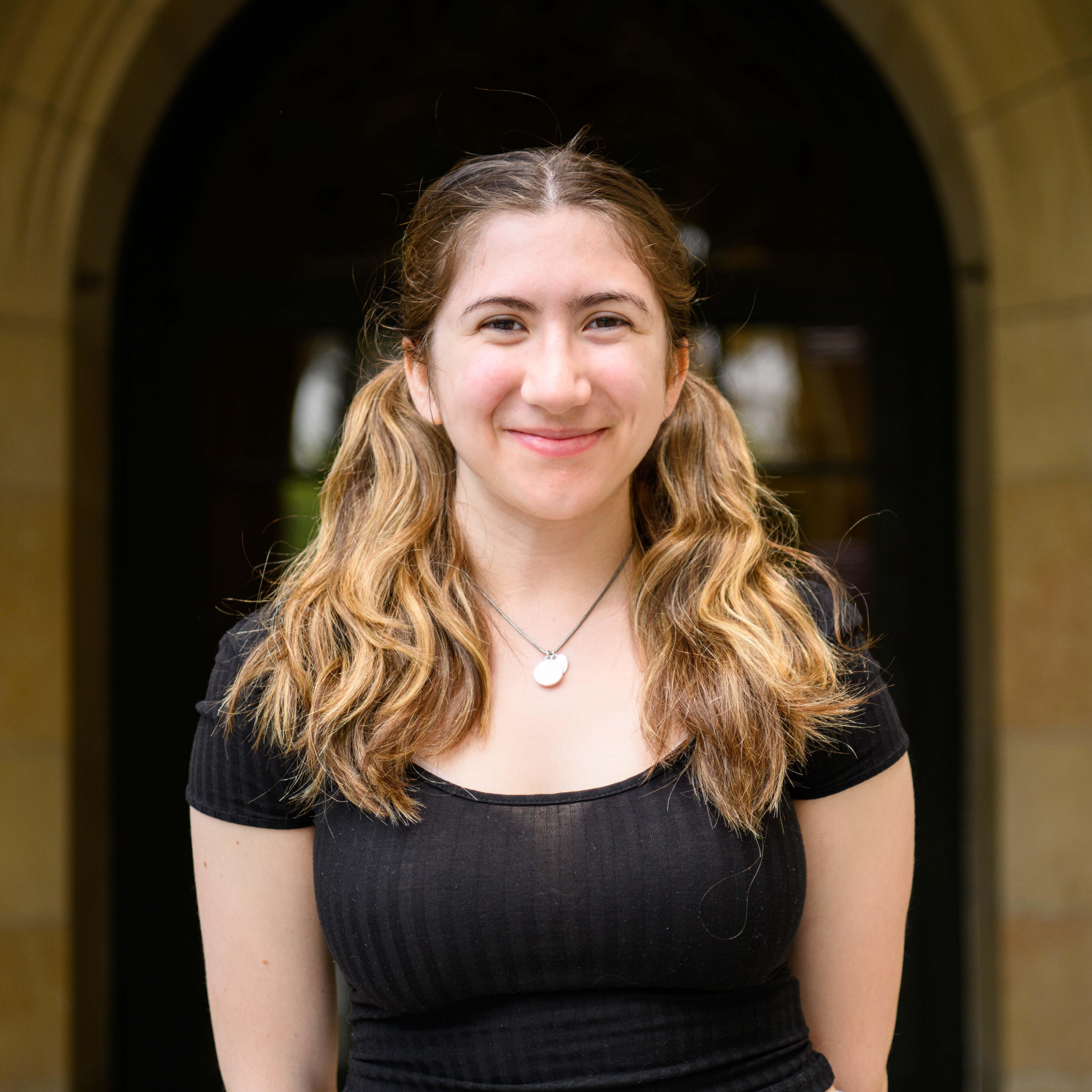
By Amelie Ionescu
Feb. 25, 2023 5:06 p.m.
This post was updated Mar. 1 at 8:52 p.m. to update caption information.
“SuperAmerica” is making history for Black theatrical representation at UCLA.
Fueled by themes of capitalism, white supremacy and the Black experience, “SuperAmerica” is one of UCLA’s first all-Black productions. Written by graduate student in playwriting Malick Ceesay, the play follows three young Black workers who throw a rap concert inside a gas station. The trio spends the production attempting to settle debts and achieve dreams, but ultimately end up pulled apart, Ceesay said. He added that the play hopes to highlight Black identity and how it is affected by capitalism.
“A lot of Black folk, especially Black beings who are trying to come into the world, deal with this and run into this conversation around capitalism,” Ceesay said. “The main themes were around centering capitalism, centering … Black self-worth and how capitalism, in general, has affected that.”
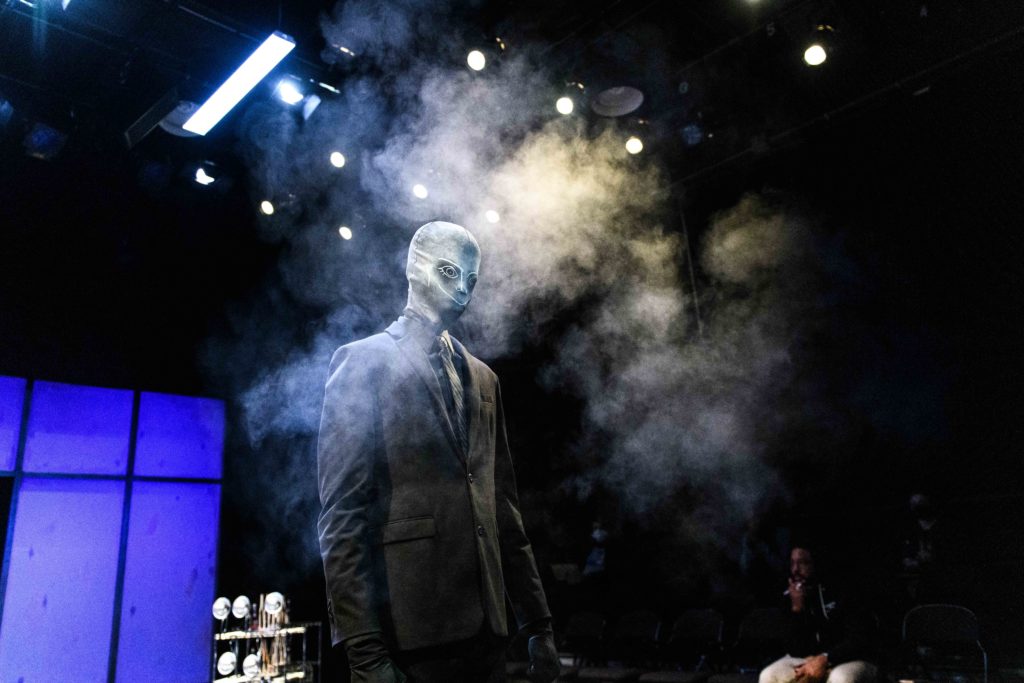
[Related: Student play ‘The C Word’ explores femininity through visual art, surreal humor]
While writing the play, Ceesay said he drew from his teenage experiences working in customer service and visits to his local gas station. In addition to the unconventional setting of a gas station, Ceesay said his love for music and theater were also the play’s driving forces, as he searched for a way to combine all three into one production. Despite the significant changes made to his original script, Ceesay said he was finally able to bring his words onto a stage and see his creation come to life at UCLA.
For the rewriting process, Ceesay said director Bruce Lemon Jr. asked the actors to discover their characters, including their motivations and who they are as people. Through conversations with the cast and Lemon Jr., the rewriting and refining process felt almost effortless, Ceesay said. Alongside constant discussions, Lemon Jr. said taking risks and having everyone contribute to the process are critical but challenging parts of debuting a new play.
The play makes history as the first all-Black production at UCLA in years, and Lemon said the impact of having a play with an all-Black cast – including a Black director and Black playwright – held weight, especially on the university level. Despite going to a Historically Black College or University himself, Lemon said he did not have a lot of Black influences in his collegiate theatrical career, as he saw a general lack of Black faces and Black experiences within the industry. With time, he said he hoped to see more of these elements of Black theatrical representation come to fruition at UCLA and in general.
“Outside of these walls, out in the world, it’s really not as common as it should be,” Lemon said. “The hope is that it gets better every year, every generation, every class. I didn’t get that (Black influences in theater) throughout my education. And I’m really glad they (the cast) do because I know I missed it.”
Alongside Lemon and Ceesay, fourth-year theater student Scott Warren, who portrays gas station employee and former musician Lamin, said the emphasis on having an all-Black cast and the Black experience featured in the show was monumental to him as a Black man. He said the individuality of the play from the cast and crew to the rap and the story originally drew him to the production, and being able to be himself as a Black man on stage is what makes the process so enjoyable.
“Speaking as my character, it brings me a lot of joy,” Warren said. “I’d make certain Black jokes and I’d talk about certain Black nuances and Black culture. … Especially on a campus like UCLA, it’s invigorating. It just feels really good. It feels like I don’t have to hold any parts of myself back as a Black man on this stage because I’m given the space to freely just be who I am through this character.”

[Related: Q&A: Alumnus Nicole Athill reminisces on how UCLA prepared her for ‘A Whole New World’]
Throughout the play, consumerism is highlighted by the clothes Lamin wears, while the looming presence of capitalism personified as a man in a black suit wearing a mask drives the trio of titular characters apart. Using the flashy jewelry of Lamin’s costume, the setting of a gas station for a rap concert and the character motivations of settling debts, Ceesay said he is making a statement that white supremacy affects Black people in ways not typically acknowledged through media. Ultimately, Ceesay said he hopes audiences, especially non-Black audiences, think about the Black experience throughout the performance.
“I want you (a non-Black audience) to understand, … ‘What does the Black body mean for you? Or what does Black existence mean for you in a space that’s occupied with capitalism and consumerism which the initial growth of was rooted in white supremacy?’” Ceesay said. “I know you can’t necessarily fully experience it (being in a Black body), but you can understand perspectives. And I hope that this (play) can help, if not shift, … conversations to help you understand that (the Black experience).”



